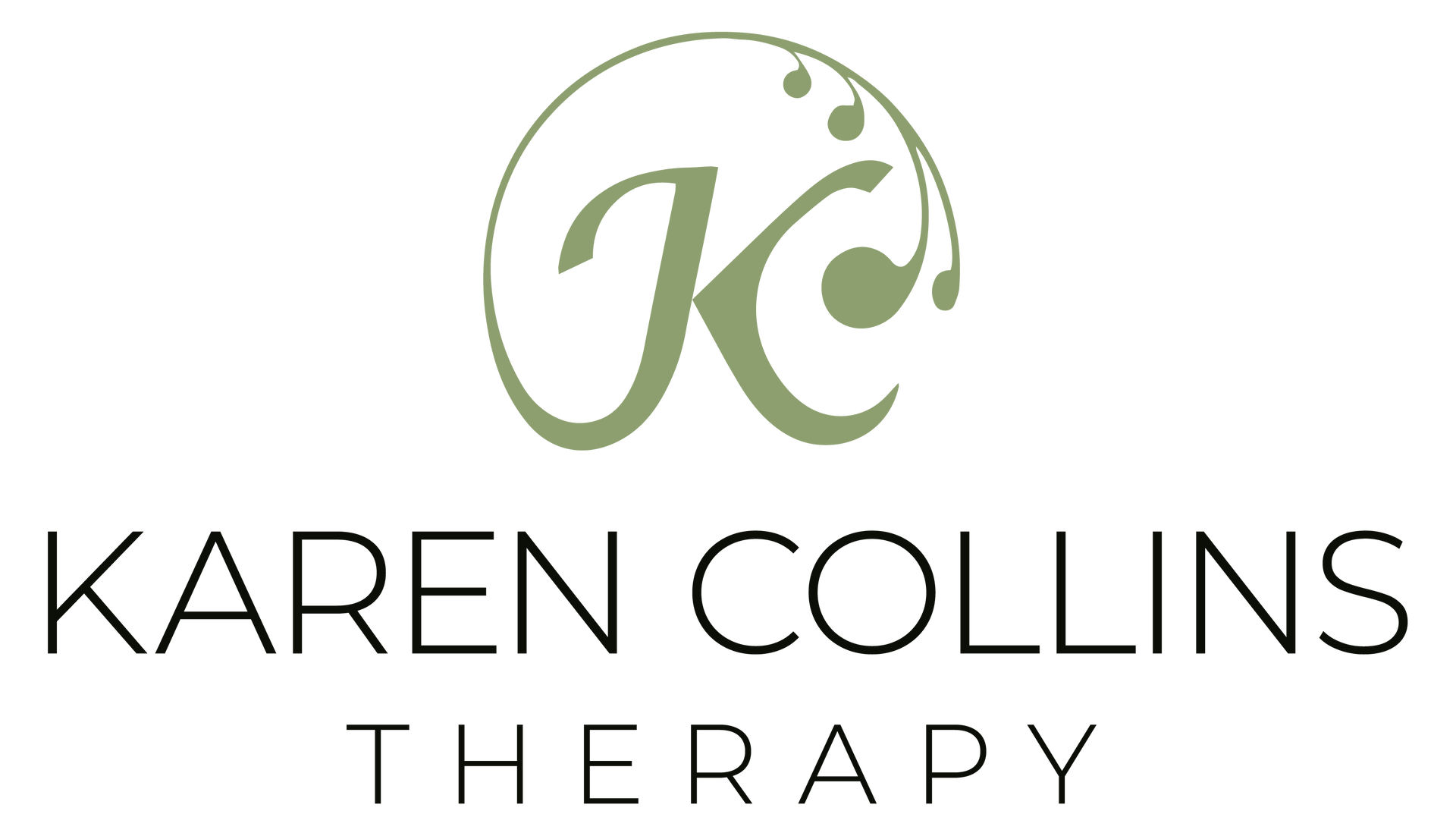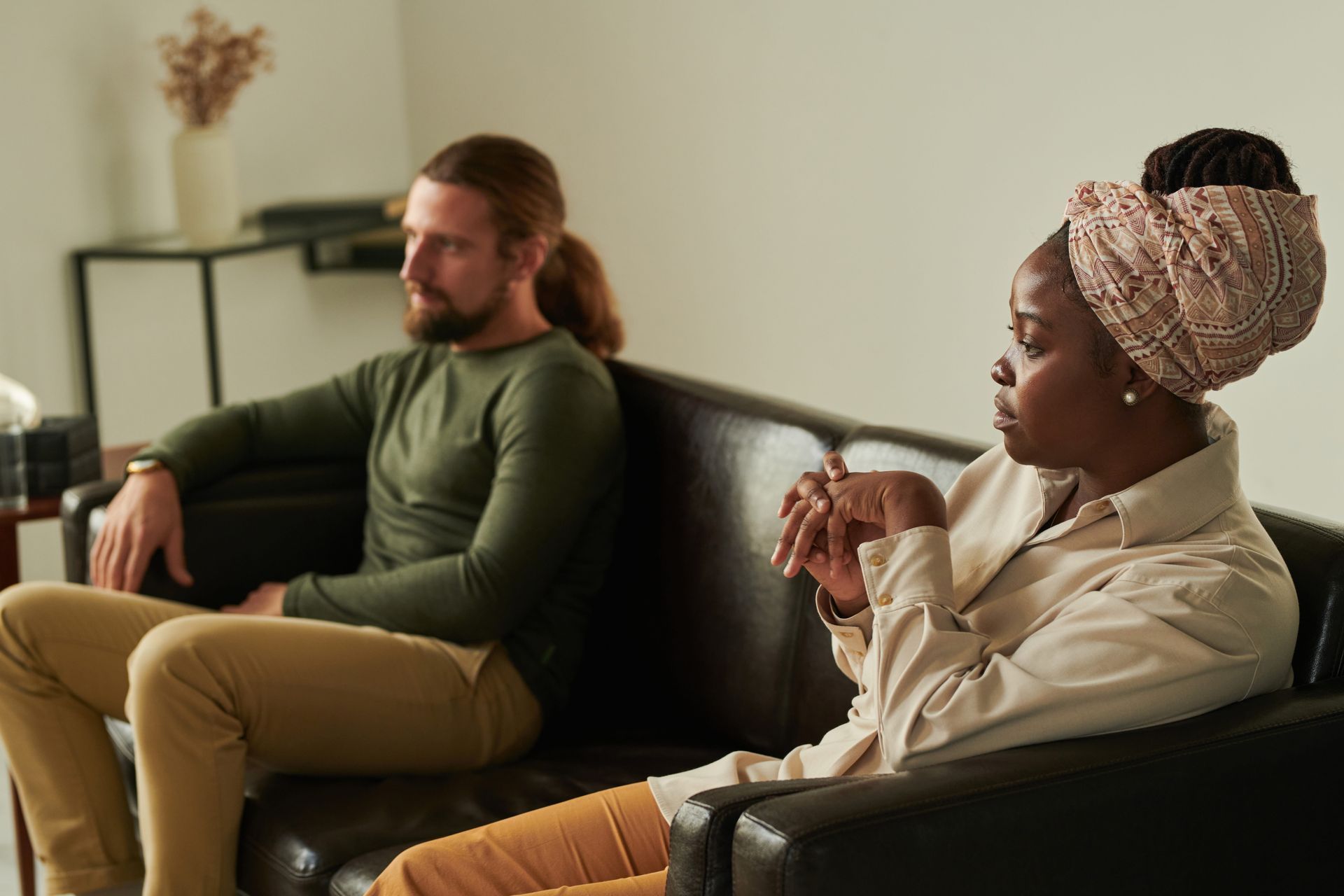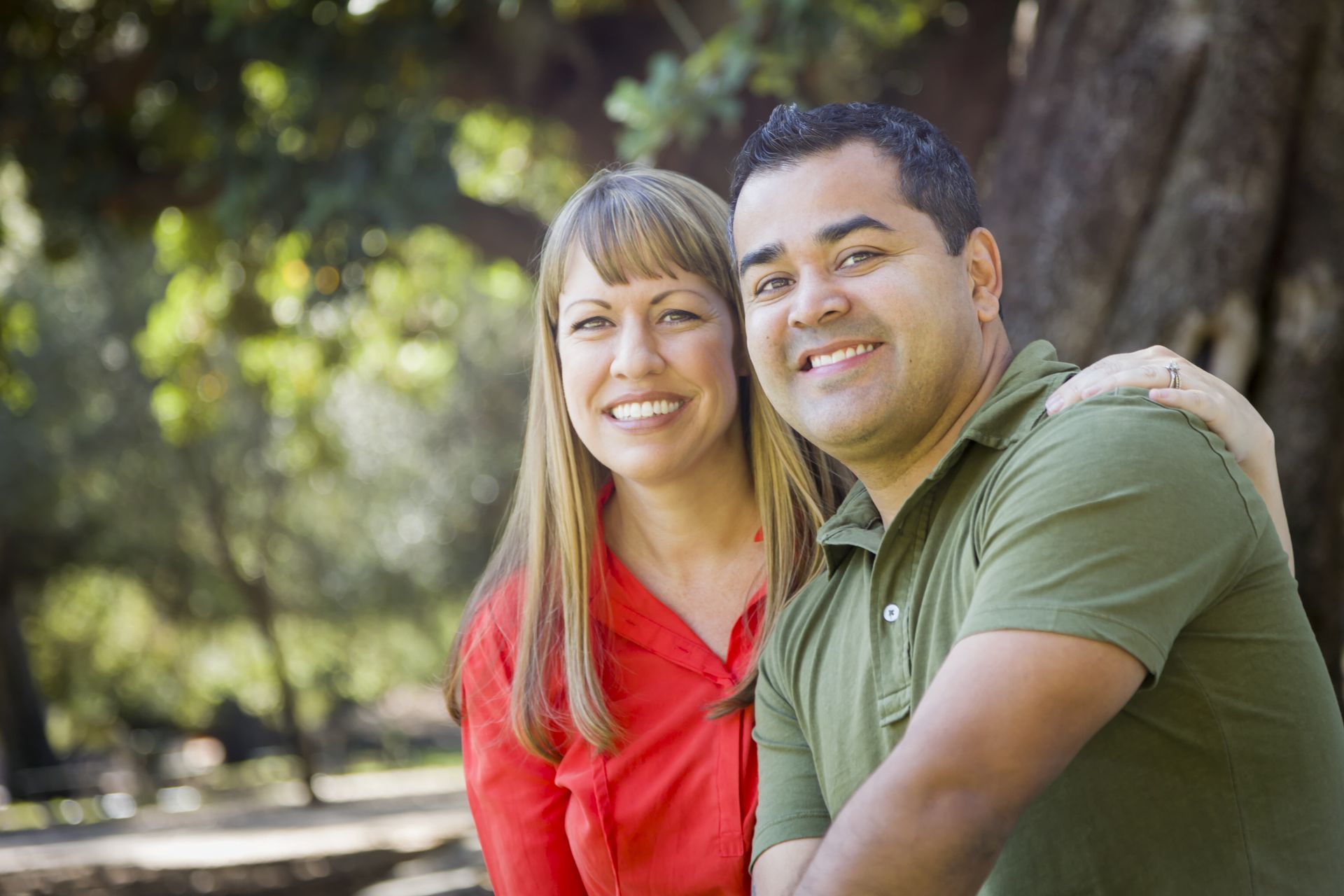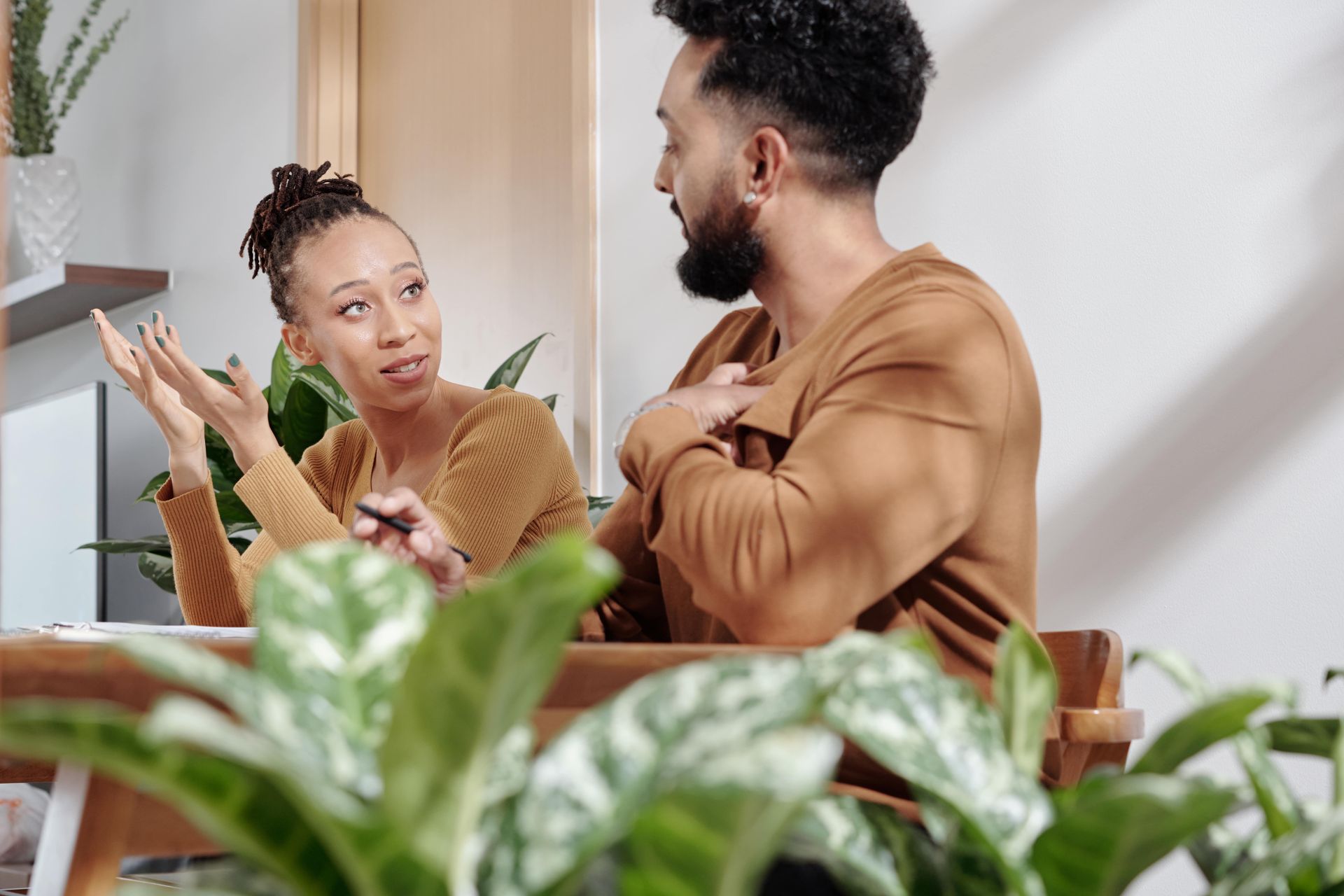Anxious Attachment in Relationships: Therapy for Adults in Petaluma
INTRODUCTION
Do you find yourself constantly worrying about your relationships? Maybe you check your phone obsessively waiting for your partner to text back, or you feel anxious when they need space. Perhaps you struggle with an overwhelming fear of abandonment, or you find yourself being "too much" in relationships, too needy, too clingy, too worried. If this sounds familiar, you might have what attachment theory calls an anxious attachment style.
I'm Karen Collins, a licensed marriage and family therapist in Petaluma, and I specialize in helping adults heal attachment issues that are affecting their relationships and overall well-being. Anxious attachment isn't a flaw in who you are, it's a pattern you learned early in life as a way to stay connected to caregivers who were inconsistent or unpredictable. The good news is that these patterns can change through therapy.
In my practice in Petaluma, I use attachment-based therapy to help individuals and couples understand their relational patterns and develop more secure ways of connecting. Whether you're struggling in your current relationships, repeating painful patterns from past relationships, or simply want to understand why intimacy feels so anxiety-provoking, therapy can help. Attachment theory provides a framework for understanding yourself with compassion while building the skills for healthier, more fulfilling connections.
What Is Anxious Attachment?
Anxious attachment is one of the insecure attachment styles identified in attachment theory. It develops when our early relationships with caregivers were inconsistent, sometimes responsive and loving, other times unavailable or unpredictable. As children, we learned that we couldn't count on our needs being met consistently, so we developed strategies to try to ensure connection: clinging, protesting, heightening our emotions to get attention.
As adults, these strategies continue even when they're no longer serving us. People with anxious attachment often experience intense relationship anxiety. You might feel like you need constant reassurance from your partner. You may interpret normal relationship ebbs and flows as signs that something is wrong or that your partner is pulling away. The fear of abandonment can feel overwhelming, leading to behaviors that ironically sometimes push partners away.
In my work as a therapist in Petaluma, I see how anxious attachment shows up in current relationships: difficulty trusting that your partner loves you even when they show it, constantly seeking validation, struggling when your partner needs independence, or feeling like you're "too much" for others to handle. You might also find yourself attracted to emotionally unavailable partners, creating a dynamic where your anxiety is constantly triggered.
Understanding anxious attachment through therapy helps you see that these patterns make sense given your past experiences. They were adaptive when you were young. The work we do together is about creating new patterns based on who you are now and what you actually need in adult relationships.
Signs You Might Have Anxious Attachment
Recognizing anxious attachment in yourself is the first step toward healing. Many adults in Petaluma come to therapy not initially realizing that their relationship struggles stem from attachment issues. Here are common signs:
You feel anxious when your partner doesn't respond to texts or calls quickly. Normal delays feel like rejection, and you find yourself spiraling into worry about what it means. You may send multiple follow-up messages or feel unable to focus on anything else until you hear back.
You struggle with your partner needing space or independence. When they want time alone or with friends, it feels personal, like they're choosing to be away from you rather than simply meeting their own needs. This can lead to feeling clingy or desperate, which you often feel ashamed about afterward.
You constantly seek reassurance in relationships. You might frequently ask if your partner still loves you, if they're happy, or if everything is okay. Even when they provide reassurance, it only soothes you temporarily before the anxiety returns.
Past experiences with inconsistent caregivers or past traumas in relationships have left you hypervigilant. You're always scanning for signs that something is wrong, that your partner is losing interest, or that the relationship is in danger. This hypervigilance is exhausting and creates anxiety even when things are actually going well.
You have difficulty trusting that love will last. Deep down, you may believe that people will eventually leave you or that you're not worthy of consistent love. This underlying belief shapes how you interpret your partner's behavior and can become a self-fulfilling prophecy.
How Anxious Attachment Develops
Attachment issues don't develop in a vacuum, they're rooted in our early relationships. In therapy, we explore how your past experiences shaped your current relational patterns. Understanding this origin isn't about blaming your parents or caregivers; it's about making sense of your patterns with compassion.
Anxious attachment typically develops when caregivers were inconsistent in their responsiveness. Maybe your parent was loving and attentive sometimes but distracted or emotionally unavailable at other times. Perhaps they were dealing with their own mental health struggles, addiction, or life stressors that affected their ability to be consistently present. You learned that connection wasn't reliable, so you had to work hard to maintain it, and that pattern continues in your adult relationships.
For many adults I work with in Petaluma, there's also a connection between anxious attachment and growing up with a narcissistic or emotionally unpredictable parent. When love felt conditional, based on your performance, your behavior, or your parent's mood, you learned to be hypervigilant about maintaining that connection. This creates a deep-seated anxiety about relationships that persists into adulthood.
Traumatic experiences in past relationships can also intensify anxious attachment. If you've experienced betrayal, abandonment, or emotional abuse in previous partnerships, it makes sense that you'd be anxious about it happening again. Your nervous system is trying to protect you by staying alert for danger, but this protective strategy keeps you in a constant state of relationship anxiety.
How Anxious Attachment Affects Your Relationships
Anxious attachment doesn't just create internal distress, it significantly impacts your current relationships and relationship dynamics. Understanding these patterns through therapy helps you see what's happening and why, which is the first step toward change.
One common pattern is pursuing connection in ways that can feel overwhelming to partners. When you're anxious, you might seek more contact, more reassurance, more closeness. If your partner has a more avoidant attachment style, this can create a pursue-withdraw cycle where the more you seek connection, the more they pull back, which increases your anxiety even more.
Anxious attachment can also lead to difficulty with building intimacy in healthy ways. True intimacy requires vulnerability and trust, believing that you can be yourself and still be loved. When you're constantly worried about abandonment, it's hard to relax into genuine connection. You might find yourself performing or people-pleasing rather than being authentic.
Many people with anxious attachment also struggle with self-awareness about their own needs. You've learned to be so focused on your partner's feelings and behaviors that you've lost touch with what you actually need. In therapy, we work on helping you tune back into yourself, your feelings, your needs, your boundaries, rather than constantly monitoring your relationship for signs of danger.
The emotional experience of anxious attachment can also be exhausting. The constant anxiety, the rumination, the fear, it takes a toll on your mental health and can contribute to depression and anxiety beyond just relationship concerns. This is why therapy services that address both the attachment patterns and the broader mental health impacts are so important.
Therapy for Anxious Attachment: How It Works
As a therapist in Petaluma who specializes in attachment-based psychotherapy, I help adults understand and heal their attachment issues through a combination of insight and practical skill-building. The therapy process is both about understanding where your patterns came from and actively creating new ones.
We start by mapping your attachment history and recognizing your patterns. This involves exploring your early relationships and how they shaped your expectations about connection, safety, and love. We look at the relational patterns that show up in your current relationships, when you feel most anxious, what triggers your fear of abandonment, and how you typically respond when your attachment system is activated.
A core part of attachment therapy is developing what's called "earned secure attachment." Even if you didn't have secure attachment in childhood, you can develop it as an adult through therapy and through secure relationships. The therapeutic relationship itself becomes a model for secure connection, I provide consistent, reliable, attuned support, which helps your nervous system learn that connection can be safe.
We also work on practical skills for managing relationship anxiety. This includes learning to self-soothe when you're activated, developing the ability to reality-test your anxious thoughts (is this fear based on what's actually happening or on past experiences?), and practicing communicating your needs in ways that invite connection rather than pushing people away.
I use psychodynamic and attachment-based approaches to help you understand the unconscious patterns driving your behavior. Often, your anxious attachment triggers happen automatically, before you're even consciously aware. Through therapy, you develop greater self-awareness about what's happening in the moment, which gives you more choice about how to respond.
Reparenting Yourself: Healing Attachment Wounds
One of the most powerful aspects of healing anxious attachment is what I call "reparenting yourself." This concept is central to my work with clients in Petaluma who are healing from insecure attachment patterns.
Reparenting yourself means learning to provide for your own emotional needs in the ways your caregivers couldn't. When you have anxious attachment, you learned to look outside yourself for soothing, validation, and a sense of safety. Reparenting involves developing an internal source of these things.
This doesn't mean you shouldn't need other people, we're wired for connection, and needing others is healthy. But it does mean developing the capacity to regulate your own emotions, validate your own experiences, and maintain a stable sense of self even when your partner isn't immediately available.
In therapy, we work on building this internal capacity. You learn to notice when you're feeling anxious and to respond to yourself with compassion rather than criticism. Instead of spiraling into "I'm too needy" or "Something must be wrong," you practice acknowledging "I'm feeling anxious right now, and that makes sense given my history.
What do I need in this moment?"
This reparenting work is deeply healing. Many clients tell me that learning to be there for themselves in this way transforms not just their relationships but their entire sense of self. You develop a secure base within yourself, which paradoxically makes it easier to connect with others in healthier ways.
Can Anxious Attachment Change?
The question I hear most often from adults struggling with attachment issues is: "Can I actually change?" The answer is yes, absolutely. Attachment patterns are not fixed. They're learned, which means they can be re-learned.
Research on attachment theory shows that adults can develop "earned secure attachment" through therapy and through secure relationships. This means that even if your early relationships created insecure patterns, you can develop more secure ways of relating as an adult. It takes work, but it's genuinely possible.
In my private practice in Petaluma, I've seen many clients make significant shifts in their attachment patterns. This doesn't mean the anxious feelings disappear completely overnight, healing is a process. But you can learn to manage those feelings differently, to trust more, to relax into relationships, and to build the kind of secure connections you didn't have growing up.
The key is working with a therapist who understands attachment theory and who can provide the kind of consistent, attuned relationship that helps your nervous system learn new patterns. The therapy itself becomes a corrective emotional experience, a relationship where you're seen, valued, and responded to consistently, which helps heal the wounds of inconsistency from your past.
Time also matters. Developing earned secure attachment isn't a quick fix, it typically takes months to years of therapy. But the changes are lasting because you're not just managing symptoms; you're fundamentally shifting the patterns that have shaped your relationships throughout your life.
Anxious Attachment in Couples
While anxious attachment affects you as an individual, it also significantly impacts couple relationships. In my work with couples in Petaluma, I often see how one or both partners' attachment styles create patterns that keep them stuck.
When one partner has anxious attachment and the other has avoidant attachment, you get what attachment researchers call the "pursue-withdraw" or "protest polka" pattern. The anxious partner seeks more closeness and reassurance, which triggers the avoidant partner's need for space, which increases the anxious partner's fear of abandonment, which leads to more pursuing, and the cycle continues.
Understanding these patterns through an attachment lens helps both partners have compassion for each other. The anxious partner isn't "clingy" or "needy" in a character-flaw way, they're responding to a genuine nervous system activation based on their attachment history. The avoidant partner isn't "cold" or "rejecting", they're protecting themselves based on their own attachment wounds.
Couples therapy focused on attachment helps partners recognize these cycles when they're happening and develop new ways of responding. The anxious partner learns to communicate their needs without pursuing or demanding. The avoidant partner learns to stay engaged and provide reassurance even when their instinct is to withdraw. Both partners develop more secure ways of connecting.
Many couples find that understanding attachment theory is transformative. It provides a framework that takes the blame out of their struggles and helps them see their patterns with compassion. This makes it possible to make real changes rather than just fighting about the same issues repeatedly.
Why Choose Attachment-Based Therapy in Petaluma
Working with a therapist in Petaluma who specializes in attachment issues offers specific advantages. In-person therapy provides the kind of consistent, face-to-face connection that's particularly important for healing attachment wounds. The therapeutic relationship itself becomes part of the healing, you experience what it's like to have someone show up reliably, attune to your needs, and provide a safe space for your vulnerability.
My approach combines attachment theory with psychodynamic psychotherapy, which means we're not just working on surface-level symptoms but understanding the deeper patterns driving your struggles. We explore how your past experiences show up in your present, and we work on creating lasting change at that deeper level.
I also bring over 20 years of experience working with adults dealing with relationship issues, anxiety, depression, and the lasting impacts of difficult early relationships. My therapy services are grounded in compassion and a genuine belief that people can heal and change when they have the right support.
Petaluma offers a supportive community for this work. Working with a local therapist means having consistent access to in-person sessions, which research shows is particularly effective for attachment-focused therapy. The face-to-face connection, the nonverbal attunement, the felt sense of safety in the room, these all contribute to healing anxious attachment.
Taking the First Step
If you're recognizing yourself in this description of anxious attachment, taking the first step toward therapy might feel scary. That makes sense, reaching out for help requires vulnerability, and vulnerability is exactly what feels risky when you have anxious attachment.
Know that many adults in Petaluma have walked through my door feeling exactly how you feel right now. Anxious attachment makes seeking therapy particularly challenging because you might worry about being judged, about being "too much," or about the therapist eventually rejecting you too. These fears are understandable, and we can work with them together.
The therapy process starts with simply showing up and being honest about what you're struggling with. I create a safe and supportive environment where you can explore your attachment patterns without judgment. We'll work at your pace, respecting that building trust takes time, especially when trust has been broken in the past.
You don't have to have everything figured out before starting therapy. You don't need to fully understand your attachment style or have articulated all your patterns. You just need to be willing to explore these issues and work toward change. The rest we'll figure out together.
FAQ: Common Questions About Anxious Attachment Therapy
How long does it take to heal anxious attachment?
Healing attachment patterns is a process, not a quick fix. Most people notice some improvements within a few months, better self-awareness, some ability to manage anxious feelings differently, but developing earned secure attachment typically takes 18 months to several years of consistent therapy. The timeline varies based on the depth of your attachment wounds, your life circumstances, and how much support you have outside therapy.
Can I work on anxious attachment without bringing my partner to therapy?
Absolutely. Individual therapy for attachment issues can be incredibly effective. You can work on understanding your patterns, developing self-soothing skills, and building earned secure attachment even without your partner's involvement. That said, if you're in a relationship and your partner is willing, couples therapy focused on attachment can accelerate healing for both of you.
Will understanding my anxious attachment make it go away?
Insight is important but not sufficient on its own. Understanding where your patterns came from helps you have compassion for yourself and makes sense of your experiences. But lasting change requires both insight and new experiences, both understanding the past and practicing new ways of relating in the present. This is why therapy involves both exploration and skill-building.
I'm not in a relationship right now. Can anxious attachment therapy still help?
Yes. Actually, working on your attachment patterns when you're not in a relationship can be really valuable. You have space to focus on your own healing without the immediate triggers of relationship dynamics. The work you do now building secure attachment within yourself, healing past wounds, will serve you well in future relationships.
What if I'm not sure if I have anxious attachment?
That's okay. Many people aren't certain about their attachment style when they start therapy. Sometimes attachment patterns are mixed, or they show up differently in different relationships. In our initial sessions, we can explore your relational patterns together and determine what makes sense for your particular situation. You don't need to self-diagnose to benefit from attachment-focused therapy.
SUMMARY & NEXT STEPS
Anxious attachment can feel like a burden you carry into every relationship, the constant worry, the fear of abandonment, the sense that you're "too much." But these patterns developed for understandable reasons based on your early relationships, and they can change through therapy focused on attachment issues.
As a therapist in Petaluma who specializes in attachment-based psychotherapy, I've helped many adults heal their anxious attachment patterns and develop more secure ways of connecting. The work involves understanding where your patterns came from, building new skills for managing relationship anxiety, and experiencing the kind of consistent, attuned relationship that helps your nervous system learn that connection can be safe.
You deserve relationships where you can relax, where you feel secure in your partner's love, and where your needs matter. Anxious attachment doesn't have to define your relationships forever. With the right support, you can develop earned secure attachment and build the fulfilling connections you've always wanted.
Ready to begin healing? Contact Karen Collins Therapy in Petaluma to schedule your first appointment. Call or text (415) 368-3478, or email contact@karencollinstherapy.com. Let's work together to help you feel more secure in your relationships and in yourself.












